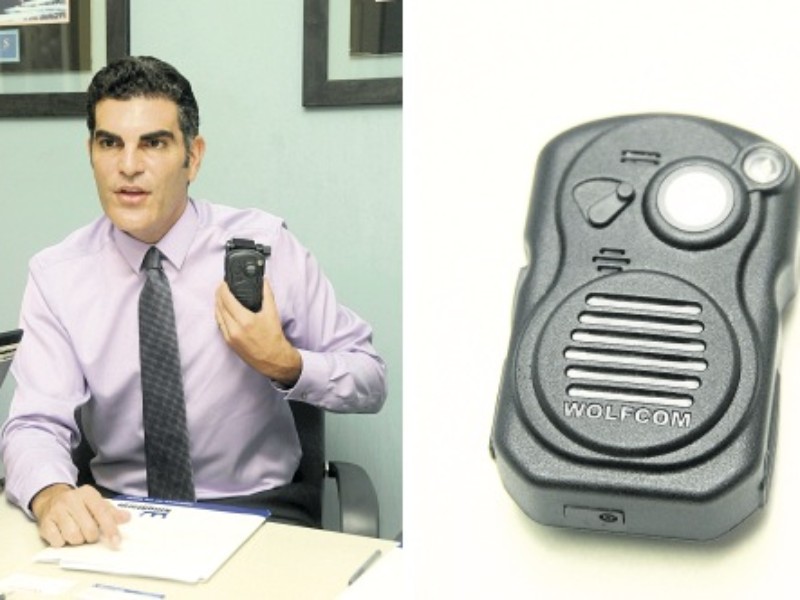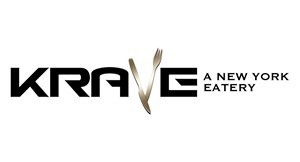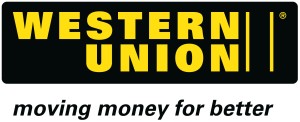
KingAlarm, Jamaica leads with body cameras
Much like ‘techies’ who get excited at the acquisition of new, state-of-the-art gadgets, KingAlarm Managing Director John Azar and his IT Manager Ferron Senior are ebullient while telling of the security company’s purchase of high-end body cameras.
Both men didn’t need to be sold on the value of the technology when National Security Minister Peter Bunting told the country in January this year that the Government intended to equip select police units with body cameras soon.
For, as Azar disclosed to the Jamaica Observer last Monday, he and Senior had actually looked at acquiring the cameras for their operations long before Bunting’s revelation.
“From an accountability point of view, we felt it would be ideal for us to roll-out for our personnel directly,” Azar said.
Having done their research, they settled on acquiring just over 150 Wolfcom 3rd Eye units, investing “in excess of $20 million initially” in the purchase.
That spend will likely increase, as KingAlarm has secured the distributorship for Jamaica and the Caribbean and has already sent samples to two other police forces in the region that have expressed interest.
Over the past few weeks, KingAlarm teams have been testing the multi-purpose, multi-functional cameras and, in a week from now, the company will become the first in Jamaica and the Caribbean to outfit every member of its response and courier teams with the technology.
“We think it will be excellent as a management tool,” Azar told the Sunday Observer. “We feel we picked a product that has some very unique features, and in so doing, I felt so strongly about the benefits that I said, ‘listen, we want to lead by example.
“A lot of North American police forces are using this particular brand of body-worn camera and we found some of the safety features to be excellent,” Azar added.
Boasting on its website that it is used by 82 police departments in 27 states in America and 25 law enforcement agencies in Australia, the manufacturers of the Wolfcom 3rd Eye describe it as “the best law enforcement camera in the world”.
The equipment’s specs will likely be more appreciated by technology experts — 1080P video camera with GPS and H.264; 16 megapixel digital camera with GPS plus the fact that the camera can be set for two-shot and three-shot bursts and comes with 8 x Digital Zoom; audio voice recorder; two-way radio integration with GPS; and infrared LEDs for night vision.
The manufacturers also point out that the Wolfcom 3rd Eye can easily be attached to a baton or broomstick to allow the user to peer around corners, over fences or into dark rooms, giving him/her “a safe tactical advantage” without exposing the user’s body to harm.
It’s the kind of equipment that Azar feels will offer tremendous assistance to the Jamaica Constabulary Force (JCF).
“One of the main features is that it is the only body-worn camera which has a GPS stamp on every single frame of footage, and let me tell you the importance of this; imagine with the JCF, you could have a situation where you have footage which is excellent, but at the end of the day a defence lawyer looks and says, ‘well hold on a minute, yes, we see that happening, but how do we know that it happened where you say it happened?’
“This is going to give you the date and time when the incident happened — date and time are linked through the satellite, so it can’t be tampered with,” Azar explained.
The GPS footage, he added, gives specific detail of where the data is captured. “So the critical thing is, you’re not only getting full video of what transpired, you’re also getting confirmation to say this is exactly where and when this took place.”
A test video captured by one of the cameras mounted on a KingAlarm-owned Amarok dashboard showed clear footage of traffic on Half-Way-Tree Road going south from Half-Way-Tree.
“The quality is fantastic,” Azar beamed.
Asked about the possibility of the data being tampered with, both Azar and Senior suggested that that was next to impossible.
“There are heavy security protocols and protections around who can do anything with video. So if you had one of these wearing and something took place that you really didn’t want anybody to see you can’t delete it, there’s nothing you can do to the footage,” said Azar.
“Maybe the only thing you can do is get a tractor to run over it (body camera), but then you’re going to have to account for what happened to the device assigned to you,” he added. “And even the sharing of data, it’s all password-protected, so privacy is taken care of.”
Ferron interjected: “There’s no removable SD card or anything that they can fool with. Not even the batteries we can take out. When this thing is recorded, everything stays in the internal memory.”
On return to the base, the teams will hand over the equipment, after which the information will be downloaded using either cradles or USB connections.
“We store data locally here, not in the cloud,” Ferron explained, pointing to the security comfort of keeping such footage away from the Internet.
Importantly for Azar and Ferron, the body cameras will improve professionalism and transparency in KingAlarm’s relations with its clients.
“Our protocols are going to be, once a team is exiting a vehicle to respond to a call, they must activate the cameras, so between the time they exit their vehicle, make checks of your premises and get back to their vehicle there is going to be a video and audio check of the response to your alarm, and we feel from a management point of view that is going to be critical to what we do,” said Azar.
“It’s also going to allow our operations management to check and ensure… that the training that our teams undergo is being employed in the field. And the other thing it’s going to allow is, in the event of an incident, we can use that footage in a debriefing session for future training sessions to correct errors and commend good action.”
But just as important, the KingAlarm boss said, is the fact that use of the technology will protect his staff in cases where there may be a dispute about how they performed their jobs.
Security officers Ricardo Daley and Omar Peart agreed.
“It’s a good idea,” Daley told the Sunday Observer. “For instance, if a client said we did something wrong, the camera will be able to show if that is true or not.”
Added Peart: “This will protect us.”
Those views, Azar said, are shared by staff, who are also focused on ensuring that the technology will help them satisfy their more than 10,000 clients.
source: jamaica observer






















